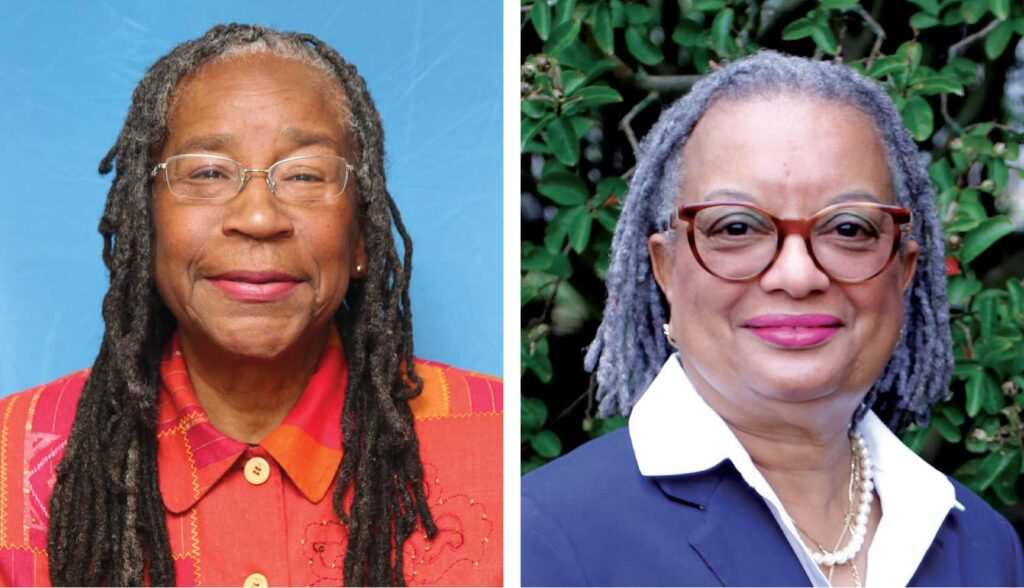VISIONS Inc. to celebrate its 40th anniversary
More than DEI, they aim to make workers feel welcome

As she helped launch a start-up company designed to help institutions become more welcoming to people of color in 1984, Valerie Batts ran into some resistance.
“People would say, ‘Why do we need this?’” she recalled. “‘We’re beyond race.’”
For such questions, Batts had answers at the ready.
“You didn’t change racial attitudes by changing laws,” she would respond. “You don’t change attitudes with processes and structures.”
Batts, who founded VISIONS Inc. along with her partner John Capitman and friends Angela Bryant and Ida Dickerson, was working primarily with corporate clients and health care providers during the Reagan years — an era marked by fierce resistance to affirmative action and other efforts at inclusion. But many corporations saw drawing in people of color as good for their bottom line and health care providers saw diversifying their workforce as a way to help improve the disparate outcomes Black and Latino patients faced in the health care system.
“It became clear to many that we wouldn’t succeed as a country if we didn’t diversify,” Batts said.
VISIONS now includes 16 staff and 50 consultants, providing what is now called diversity, equity and inclusion (DEI) consulting to businesses, nonprofits and government agencies.
The firm, which has long been headquartered in Boston, is this Friday celebrating its 40th anniversary with a sold-out gala headlined by former Netflix Head of Inclusion Verna Myers, feminist icon Gloria Steinem and civil rights activist Rev. Dr. William J. Barber II.
While DEI work is now commonplace, when VISIONS launched, such work was unheard of. VISIONS co-founder Angela Bryant said the firm’s approach was informed by its co-founders: Batts and Capitman, who studied oppression while pursuing graduate degrees in psychology, Ida Hickerson’s experiences working in education and her own experiences working in the legal field.
A core concept in VISIONS’ approach was the idea that change must happen at the personal level before institutions can be truly welcoming to everyone.
“So much of the focus was on institutional and structural change,” Bryant said. “We found that that’s not sustainable.”
The roots of DEI work go back to the 1964 Civil Rights Act, under which firms with 25 or more employees were barred from discriminating against Blacks and other racial minorities in hiring. That law and the Equal Employment Act of 1972 pushed many firms to hire people of color for the first time.
When VISIONS was founded, the firm began with trainings that helped white employees identify and contend with their own racism, sexism and other biases. A guiding principle for VISIONS was the question of how to make companies and organizations that were then dominated by white males welcoming to everyone so that diverse employees could thrive in the workplace.
VISIONS has survived and thrived, even as DEI work has become commonplace and, at the same time, come under attack from right wing activists and elected officials. The firm’s work has gone global, including work in post-Apartheid South Africa. Batts remembers working with a government official in Cape Town, who after completing a training was able to face up to the biases he grew up with.
“I never thought a Black woman could do anything for me but pour my tea,” Batts recalls the man saying during a 1993 training.
“People can’t get past their assumptions if they don’t acknowledge them,” she said.
In the current political climate, the work VISIONS and other DEI groups perform has come under fire from conservative activists and Republican-dominated legislatures and members of Congress.
Since 2023, states have introduced 65 laws targeting DEI programs in higher education and state and local governments, according to the National Education Association. Eight have passed in Florida, Texas, North Carolina, North Dakota, Tennessee and Utah. At The University of Texas, programs for Black students, undocumented students, Native American and Latino students have all closed down, even as those populations suffer from lower retention rates than whites.
In 2021, New Hampshire passed a “divisive concepts” law effectively banning schools there from teaching about racism or sexism. The law targets any materials that suggest “an individual, by virtue of his or her race or sex, is inherently racist, sexist, or oppressive, whether consciously or unconsciously.”
Batts sees this current pushback against DEI as a testament to the efficacy of the work.
“That fact that there’s a backlash now is because firms like ours have really moved the needle,” she said.
Bryant agrees.
“Whoever thought that the work we were doing was so powerful — anti-racism, anti-sexism, LGBTQ solidarity — whoever thought that it would be so powerful that the government would seek to outlaw it?” she said. “There’s always been pushback to it, but I was taken aback with the statutory and structural response.”







